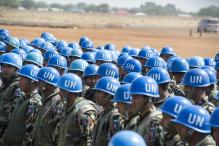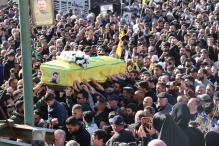There have long been concerns that the international community’s support for people exiting armed conflict can be overly rigid, formulaic, and poorly suited to their needs. This is particularly true with regard to children and women. Even research and assessments on the unique needs of children impacted by conflict often fail to sufficiently engage the very population that they seek to understand.
In research on and programming aimed at children and youth, they are usually treated as passive subjects and beneficiaries rather than as partners. In an effort to address this in its own research, the UNU-CPR partnered with War Child UK to design and pilot a participatory research approach. The goal behind this effort was to examine the needs and goals of children who are exiting armed groups and reintegrating back into society after conflict involvement as well as those of the communities they settle in.
In our collaboration with War Child, we created a participatory research approach with war-affected children and youth in Central African Republic (CAR), including former CAAFAG (children associated with armed forces and armed groups). Over the course of six months, we designed a participatory workshop model to assess the needs of children and youth impacted by conflict. In August and September 2019, the model was pilot tested through War Child’s VoiceMore groups in Bossangoa and Paoua, CAR.
The three-day workshops combined a variety of engaging, child- and conflict-sensitive activities to try to better understand:
-
what exiting armed conflict meant in the local context to those who had experienced it and to the communities that received young people leaving armed groups;
-
what doing well in their society means and how war-affected children and youth can achieve their goals;
-
what the challenges and risks, as well as the sources of strength and support, are for those leaving armed groups;
-
and how – if they were in charge – they would design and implement support for war-affected young people like them.
Doing the necessary outreach and participatory research and assessment necessary to ensure programming is responsive to needs and context is often seen as complicated, expensive, difficult and interfering with the timely delivery of essential services. As a result, it is rarely done or done in a robust or nuanced way. Yet, without accurate information, the resulting programming is unlikely to be sufficiently tailored to be effective.
Access the video here.



